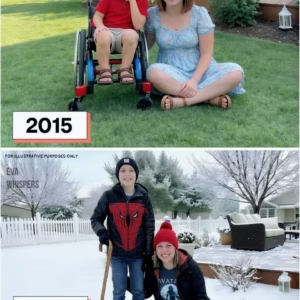Summertime is a season many people look forward to, bringing longer days, warm weather, and plenty of opportunities to enjoy the outdoors. However, with these pleasures come some challenges, particularly in the form of insects and pests that become more active during the summer months. While ticks, mosquitos, and other common pests are well-known nuisances, a less familiar but increasingly concerning insect has been making its presence felt: the assassin bug. Many people have likely never heard of this insect, but its population is on the rise across several regions, and the consequences of being bitten by one can be quite serious if not properly managed.
Fortunately, with some knowledge and awareness, you can significantly reduce the risks associated with these insects and know what steps to take in the event of a bite. Assassin bugs, also referred to as “kissing bugs,” share similarities with other blood-feeding insects in that they feed on both human and animal blood. When they bite, these insects often defecate near the site of the bite, which allows parasites present in their digestive systems to be transferred to the person or animal they have bitten. This transmission can, in certain cases, result in Chagas disease, a potentially dangerous infection caused by the parasite Trypanosoma cruzi.
The progression and symptoms of Chagas disease can vary over time, often beginning with mild or unnoticed symptoms and sometimes escalating to serious complications that affect the heart, which in severe instances can be fatal. This underscores the importance of taking steps to prevent bites and knowing how to respond quickly if you or someone in your family comes into contact with an assassin bug. Assassin bugs are found throughout most parts of the United States, but they appear to be more prevalent in the Southern states, where warmer climates allow them to thrive. These insects are often found in outdoor areas such as gardens, around porches, and in piles of leaves, wood, or other debris.
They can also make their way indoors if conditions are favorable, making it essential to maintain clean and well-kept outdoor and indoor spaces. Regularly removing debris, trimming vegetation near the home, and sealing potential entry points can help reduce the risk of an infestation and keep assassin bugs away from your living areas. The symptoms of Chagas disease are often subtle and may not appear immediately, which can make early detection challenging.
Some of the more common symptoms include headache, fever, rashes, unexplained fatigue, and vomiting. However, it is important to note that many people infected with Chagas disease show few, if any, noticeable symptoms during the initial stages. This asymptomatic period can be dangerous because the parasite may continue to multiply and gradually damage internal organs, particularly the heart, over time. Early diagnosis and treatment are therefore crucial, as medical intervention at an initial stage significantly improves the likelihood of a successful recovery.
If you suspect that you have been bitten by an assassin bug, it is essential that you seek medical attention without delay. A healthcare professional can perform a blood test to determine whether the parasite has been transmitted and provide appropriate guidance and treatment if necessary. Prompt testing and medical care greatly increase the effectiveness of treatment and reduce the risk of long-term complications associated with Chagas disease.
It is important to remember that the presence of assassin bugs in your environment does not mean that you need to stay indoors or avoid outdoor activities altogether. Instead, it highlights the need to be aware of your surroundings, take preventive measures, and know how to respond in the event of a bite. By understanding where these insects are likely to be found, practicing good hygiene and home maintenance, and taking quick action if a bite occurs, you can protect yourself, your family, and your pets from potential health risks.Buy vitamins and supplements
In summary, assassin bugs are an emerging concern that warrants attention, especially during the warmer months when people are more active outdoors. Educating yourself about these insects, recognizing the potential symptoms of Chagas disease, and knowing when to seek medical care are all critical steps in minimizing risk. By being vigilant and proactive, you can continue to enjoy summer activities safely while keeping your household protected from this hidden but potentially serious threat.





